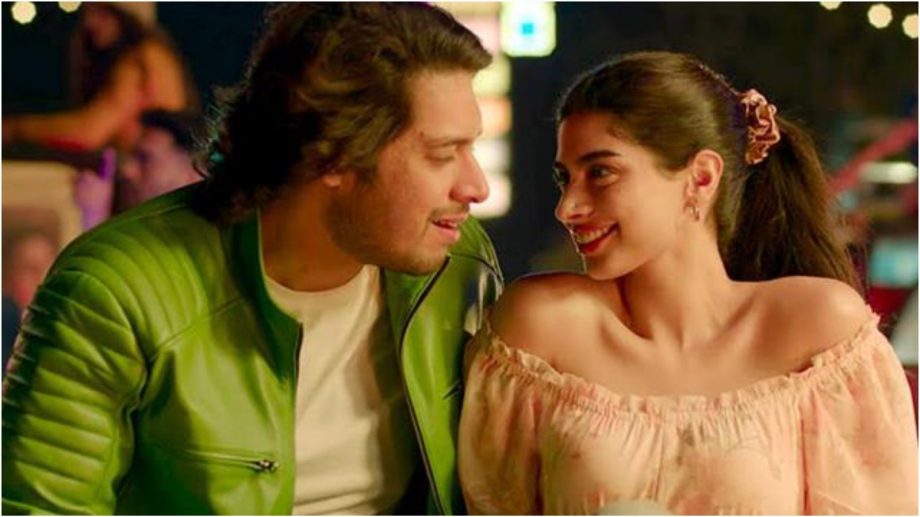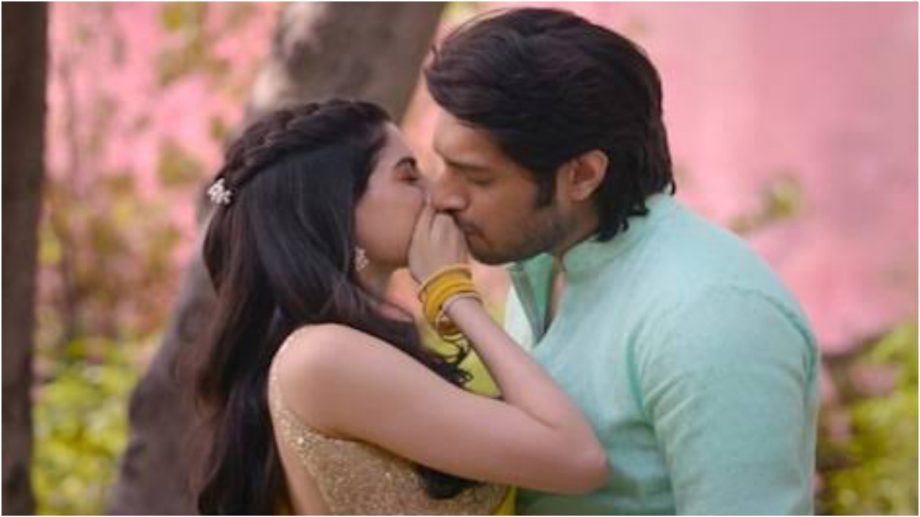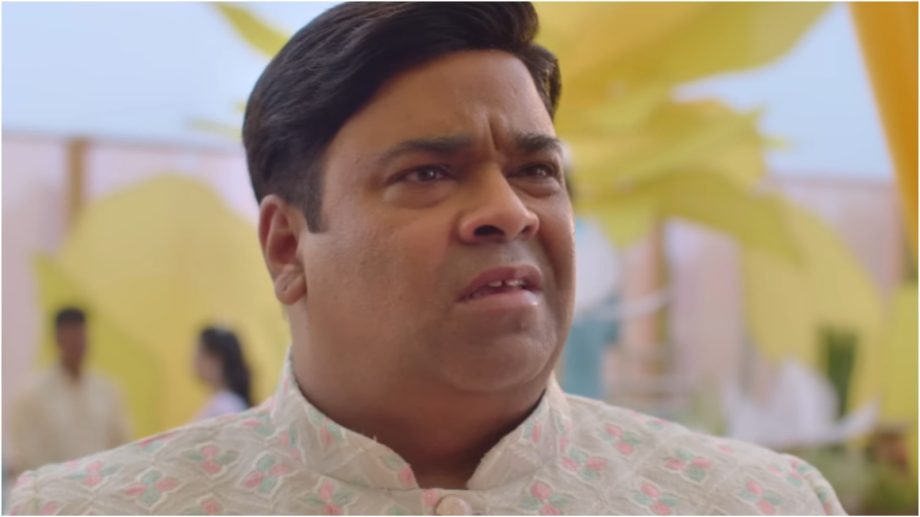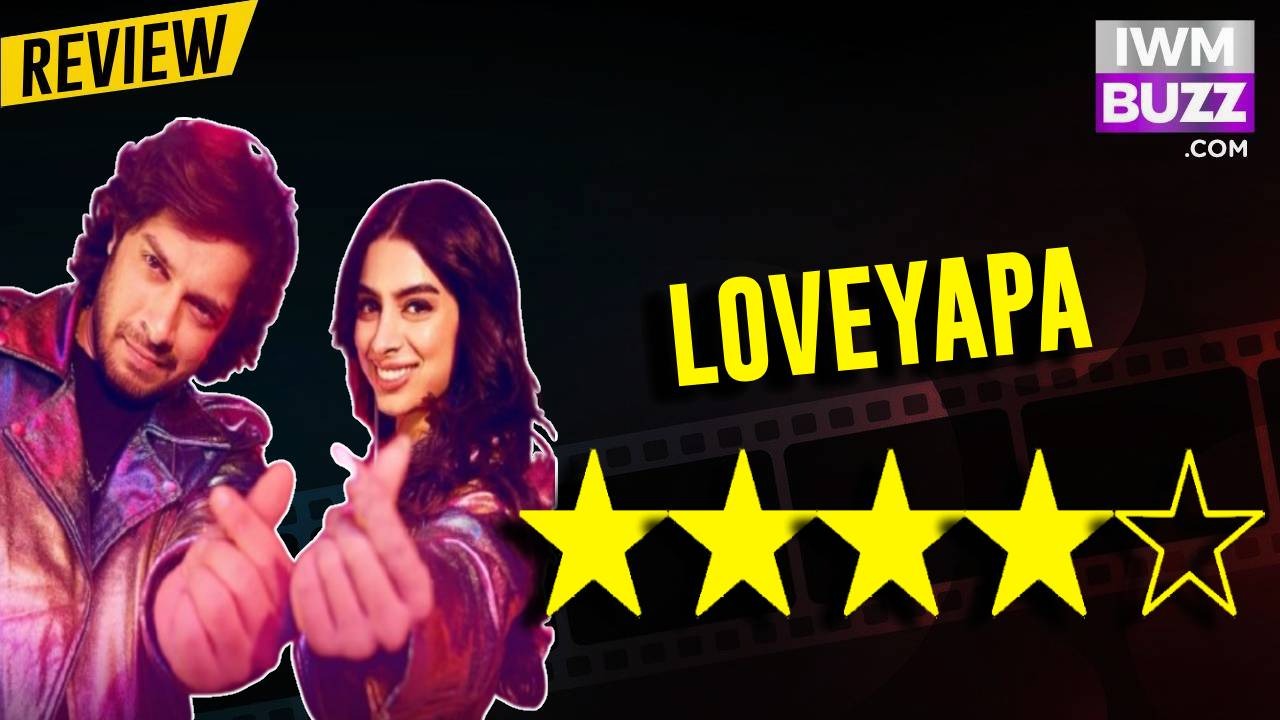Loveyapa
Rating – **** (4/5)
Cast: Junaid Khan, Khushi Kapoor, Ashutosh Rana, Kiku Sharda & more
Directed by: Advait Chandan
In theaters: February 7th
Walking into a film with a cacophony of preconceived notions can be both a curse and a blessing. Sometimes, those expectations are validated, and other times, the final product pulls a trick on you—delivering something entirely different from what you imagined.
Loveyapa, the official remake of Love Today (2022), finds itself teetering right in the middle of this paradox, oscillating between exceeding expectations and struggling under the weight of its own ambitions.
From the outset, Loveyapa arrived with a certain social media-generated buzz, largely fueled by the debut of its leads, Junaid Khan and Khushi Kapoor. The sheer intrigue surrounding their first big-screen outing ensured that the film carried an extra layer of scrutiny. But does it crumble under the pressure, or does it manage to break free from the shadows of cynicism? The answer isn’t as binary as one would hope—it’s both, and yet, neither.

The plot unfolds with Gaurav aka Gucci (Junaid Khan) and Bani aka Bani Boo (Khushi Kapoor), a pair of young 24-year-olds deeply entangled in the heady rush of love. They’re in that comfortable phase of modern romance—secure in their affection, tentatively discussing their future, yet not quite ready to take the plunge.
However, a curveball is thrown their way when Bani’s father lays down an audacious test: swap phones for 24 hours. If they emerge unscathed, he’ll consider their relationship worthy of his blessing. What ensues is an inevitable descent into chaos—hidden truths unravel, insecurities surface, and the entire foundation of their relationship is put to the ultimate test.
In essence, Loveyapa is a film that throws itself headfirst into the whirlwind of modern relationships and digital dilemmas. It wants to say a lot, and to its credit, it does land several punches effectively.
Director Advait Chandan approaches this adaptation with a keen understanding of the digital-first generation. He recognizes the necessity of making the narrative feel authentic, ensuring that the technology-infused storytelling—replete with animations, chat bubbles, and pop-culture-driven jargon—strikes the delicate balance between trendy and try-hard. Fortunately, Loveyapa never veers into the “wannabe” territory, instead settling comfortably in the realm of modern-day relatability.
Where the film stumbles, however, is in its overzealous attempt to tackle multiple contemporary issues. The script attempts to comment on cybercrime, deepfake technology, online trolling, fat-shaming, digital abuse, and more—all while maintaining its core rom-com essence.

But rather than these elements seamlessly interweaving into the screenplay, they feel like sporadic add-ons, resulting in a scattered, almost frenzied narrative that lacks cohesion. The central premise of phone-swapping inherently lends itself to the exploration of digital-age complexities, yet the screenplay, instead of carefully threading these themes together, feels like it’s throwing everything into a blender—hoping the concoction will taste good but not letting it simmer long enough for the flavors to blend.
Now, let’s talk about the leads. Junaid Khan and Khushi Kapoor arrive on the scene carrying the weight of their lineage, and it’s impossible to ignore the scrutiny that comes with it. But stepping in with a neutral lens, both actors exhibit an earnestness that, despite their evident rawness, makes their performances oddly endearing.
Sure, there are moments of visible awkwardness—Junaid still carries the stiffness of a stage performer rather than a screen actor, while Khushi occasionally struggles with modulation—but their sincerity shines through. And if there’s one thing they both master, it’s emotional vulnerability; their crying scenes, in particular, feel incredibly genuine.

Interestingly, Loveyapa benefits greatly from its supporting cast, with Kiku Sharda emerging as a surprise standout. His parallel track, centering around Gaurav’s sister and her own marital dilemmas, proves to be one of the film’s most engaging subplots. Sharda, primarily known for his comedic flair, delivers an unexpectedly nuanced performance that adds layers to the narrative.
In essence, Loveyapa is a film that throws itself headfirst into the whirlwind of modern relationships and digital dilemmas. It wants to say a lot, and to its credit, it does land several punches effectively.
The overarching message—that our digital footprints can be both our greatest allies and our worst enemies—is timely and compelling. And while the storytelling often feels hurried, it still manages to hold your attention, particularly as the drama intensifies. By the time the final moments unfold, there’s enough emotional payoff to leave you with a smile—and perhaps, even a lone tear.
Flawed yet engaging, messy yet meaningful, Loveyapa is like that one social media post you initially scroll past but then circle back to, only to find yourself oddly invested in its chaotic charm.


